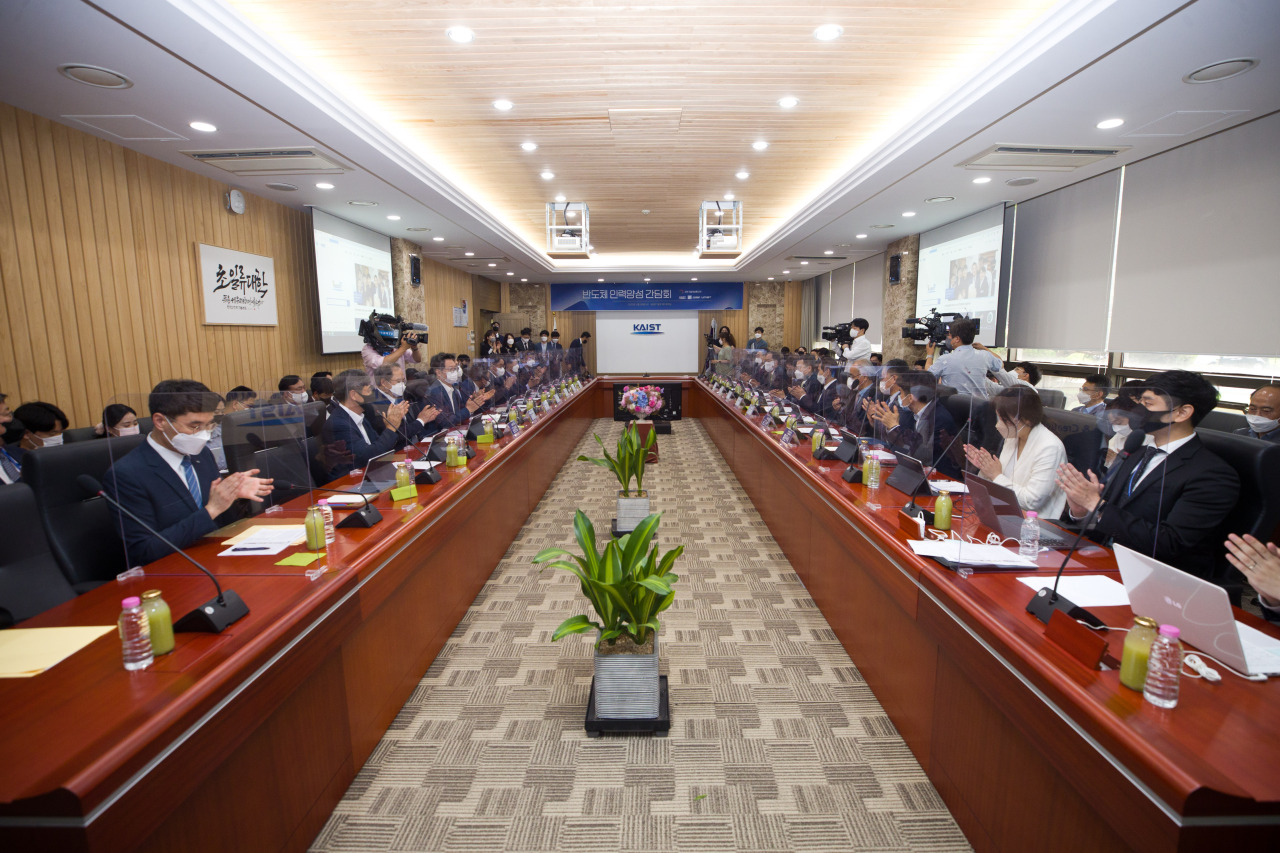 |
The Ministry of Science and ICT holds meeting with semiconductor industry leaders, major science institutes to discuss cooperation over nurturing chip talents at KAIST campus in Daejeon on Monday. (Ministry of Science and ICT) |
South Korea will double the number of professional semiconductor talents by implementing chip-company-licensed departments and strengthening graduate programs at major science institutes across the country, the Ministry of Science and ICT said Monday.
Science Minister Lee Jong-ho met with industry leaders including chiefs of Samsung Electronics and SK hynix as well as presidents of four major science institutes -- KAIST, GIST, DGIST and UNIST -- to discuss ways to cooperate for nurturing semiconductor personnel.
The ministry said the four science institutes will be at the forefront of advancing the country’s competitiveness in the non-memory chip sector while cementing the leadership in the field of memory semiconductor.
The ministry plans to secure next year’s extra budget to train talents specialized in system semiconductor design and artificial intelligence chips. The goal is to raise 3,140 chip professionals for the next five years, it said.
Starting next year, a new semiconductor department will be installed at GIST, DGIST and UNIST. The three science institutes will be in charge of educating 100 undergraduate students a year to double the annual number of 100 chip undergraduates currently being trained only at KAIST.
The ministry said the existing industry-contracted graduate programs at KAIST and UNIST will be strengthened. The ministry will also review a possible introduction of graduate schools or majors at GIST and DGIST, it added.
In doing so, the ministry expects to see an annual output of 500 or more talents specialized in the chip sector with master’s or doctor’s degrees in the next five years. Currently, about 220 students join the industry with semiconductor master’s or doctor’s degrees each year, according to the ministry.
The ministry also said the science schools will expand global cooperation with overseas institutes and research centers.
“The key to securing competitiveness of advanced semiconductor technology is to cultivate high-quality human resources with strong foundations and high levels of creativity so that they can be used in research and industry,” said Lee in Monday’s meeting held at the KAIST campus in Daejeon.
“For the semiconductor sector, where the speed of technological advances is fast, fostering talents through the cooperation between industry, academia and research is extremely important,” he added.
The ministry said it plans to regularly meet about the country’s combined efforts in raising chip talents to improvise systems and continue talks on how the government, semiconductor companies and science institutes can cooperate to better meet the demand for chip professionals.
By Kan Hyeong-woo (
hwkan@heraldcorp.com)







![[Today’s K-pop] Blackpink’s Jennie, Lisa invited to Coachella as solo acts](http://res.heraldm.com/phpwas/restmb_idxmake.php?idx=644&simg=/content/image/2024/11/21/20241121050099_0.jpg)
